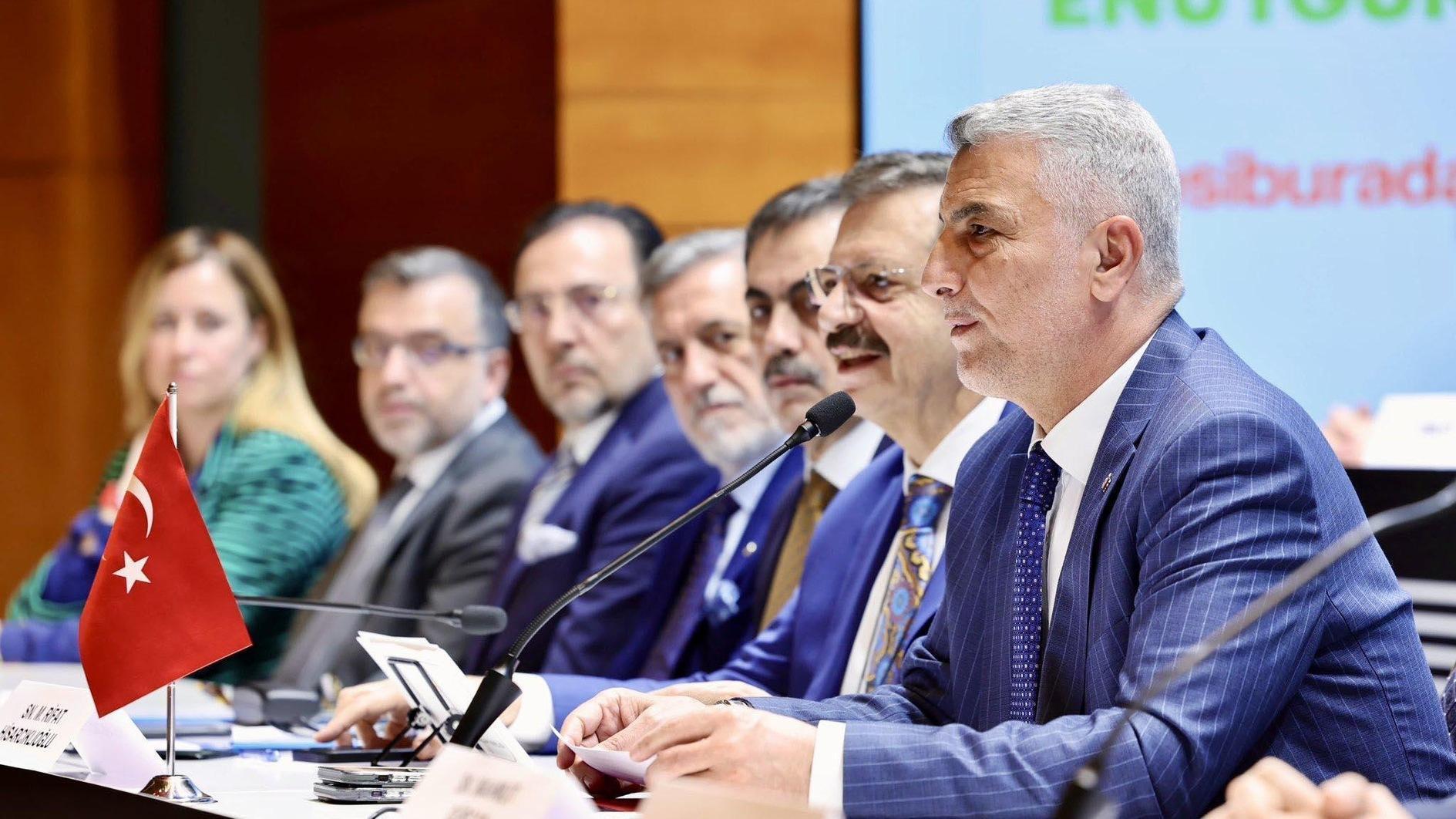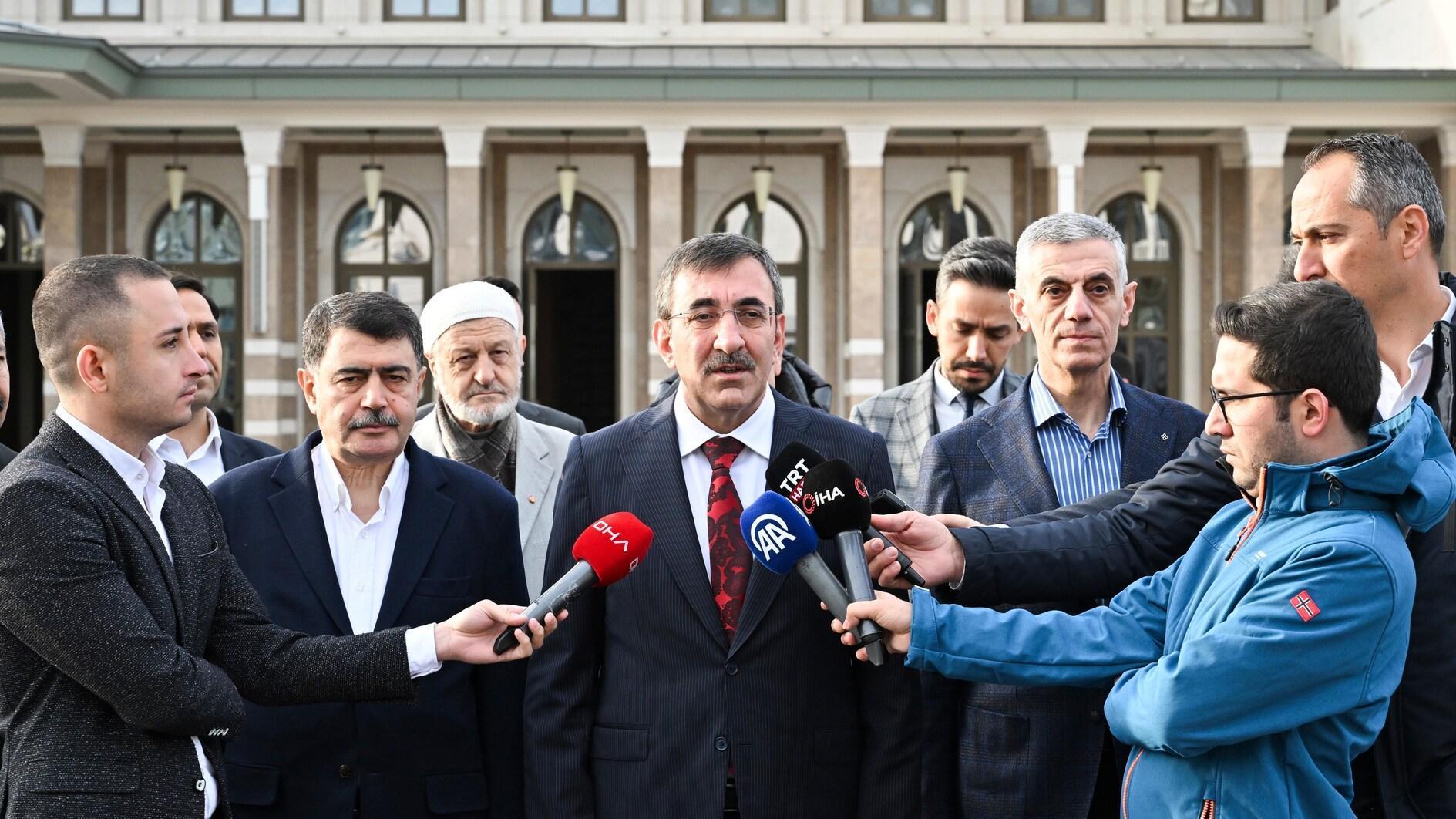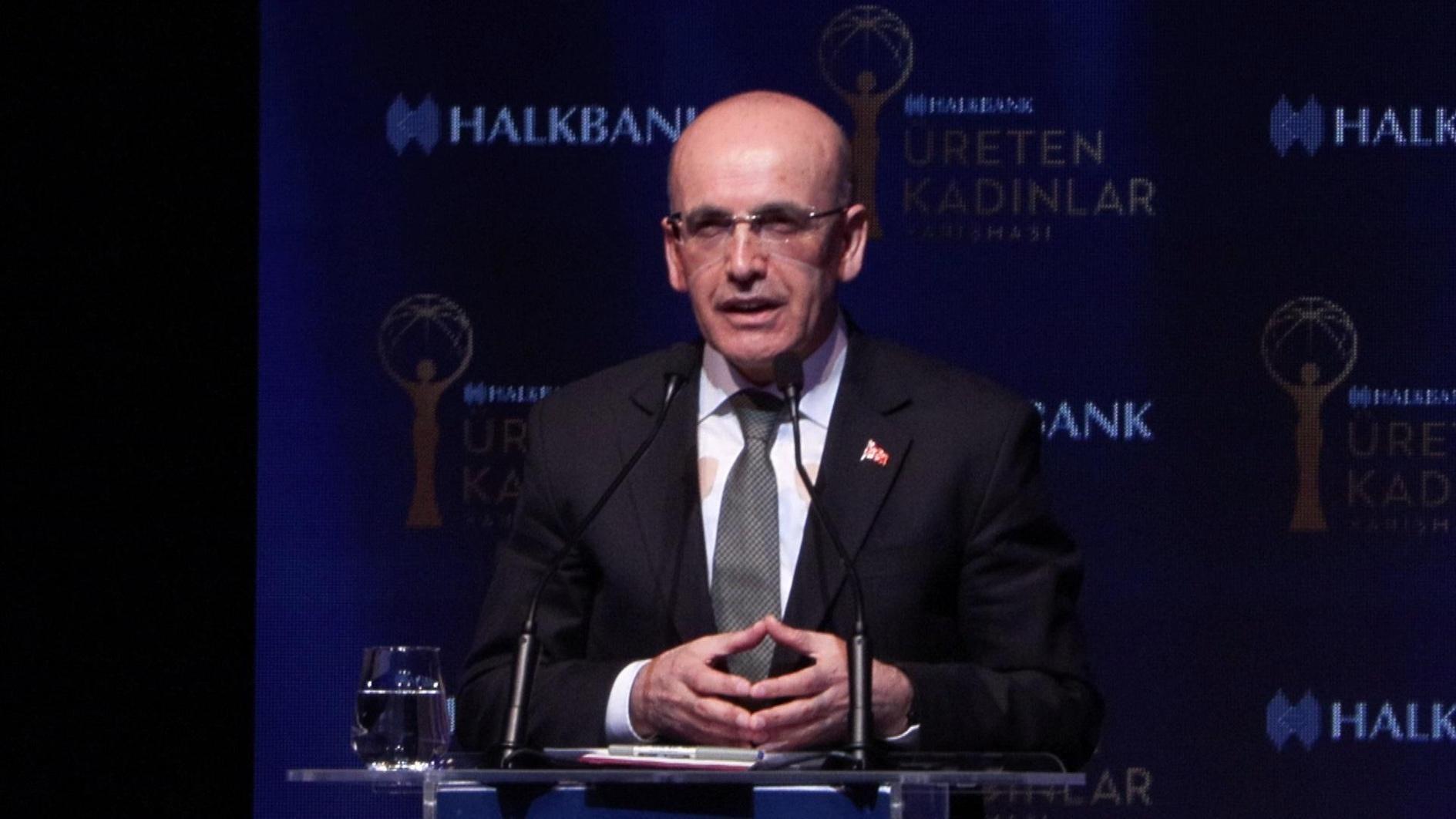Syrian crisis tops agenda of G-8 leaders in North Ireland
ENNISKILLEN, Northern Ireland

British PM Cameron (2nd L) and US President Obama help students paint a mural at Enniskillen Integrated Primary School in Northern Ireland. REUTERS photo
World leaders from the United States, Britain, Russia, Germany, France, Italy, Canada and Japan kicked off G-8 meeting yesterday for a renewed push in the Syrian crisis and put pressure on Russia to back away from its support of Syrian President Bashar al-Assad.British Prime Minister David Cameron, who chairs the summit, said his priority at the summit was to ensure a peace conference on the Syrian conflict takes place later this year to push through a transitional government to replace President al-Assad.
“What we can try and do here at the G-8 is have further pressure for the peace conference and the transition that is needed to bring this conflict to an end,” the British premier said. A first peace conference on Syria took place in Geneva in June last year and a second was mooted for this month, but it appears it will not take place until July at the earliest.
Cameron said al-Assad “wants us to think that the only alternative to him is extremism and violence.”
“My argument is that we shouldn’t accept that the only alternative to al-Assad is terrorism and violence.” Cameron said al-Assad was using chemical weapons against his own people - an assessment rejected by Russian President Vladimir Putin.
‘Are these the people you want to support?’
He also acknowledged there was “a big difference” between the positions of Russia and the West on Syria, but stressed there was also common ground between the world powers. At their first face-to-face meeting in a year, Vladimir Putin was scheuled to meet with U.S. President Barack Obama late evening. Obama was expected to try to convince Putin to bring al-Assad to the negotiating table but the Kremlin chief has warned the West it risks sowing turmoil across the Middle East by stoking the conflict.Putin asked June 16 if the West really wanted to support rebels “who not only kill their enemies but open up their bodies and eat their internal organs in front of the public.”
“Are these the people you want to support? Are they the ones you want to supply with weapons? Then this probably has little relation to the humanitarian values preached in Europe for hundreds of years,” he said after meeting with David Cameron in London.
















